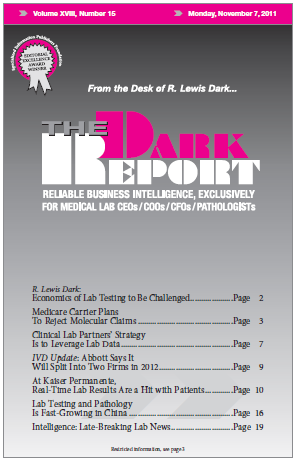CEO SUMMARY: At Clinical Laboratory Partners, the strategy is to create and deliver a growing suite of enhanced lab information services to client physicians and payers in the Connecticut market. It wants to differentiate itself from competing lab companies by packaging lab test data in ways that add value to both physicians and payers in …
Clin Lab Partners’ Strategy Is to Leverage Lab Data Read More »
To access this post, you must purchase The Dark Report.


